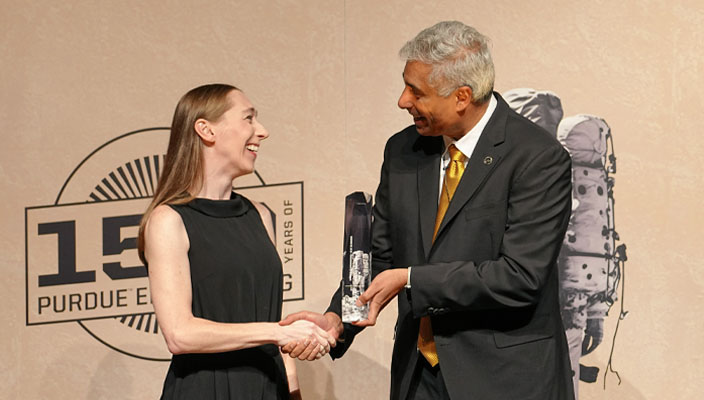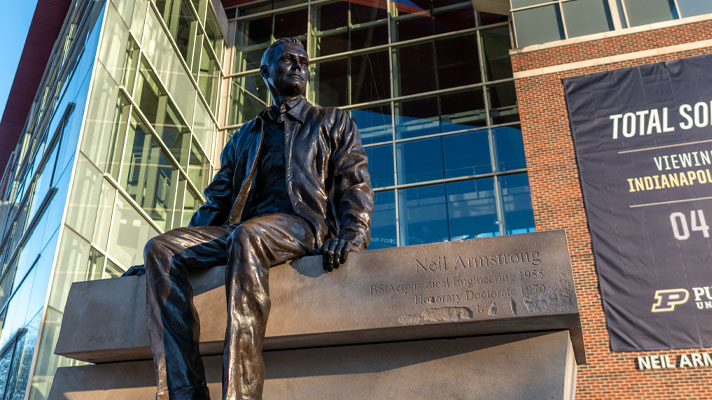Nominations for the 2025 Purdue Engineering 38 by 38 award have closed.

Recognizing Young Alumni
Since our founding in 1874, the College of Engineering has produced alumni whose achievements have shaped our world. This award celebrates the remarkable achievements of 38 Purdue Engineering alumni who are 38 years old or younger and have demonstrated a clearly accelerated trajectory of professional success, achievements and impact. They are trailblazers in their respective domains, driving positive impact with every giant leap they take.

Why 38?
The Purdue Engineering 38 by 38 award is inspired by the legacy of alumnus Neil Armstrong, who was 38 years old when he became the first person to set foot on the moon.


